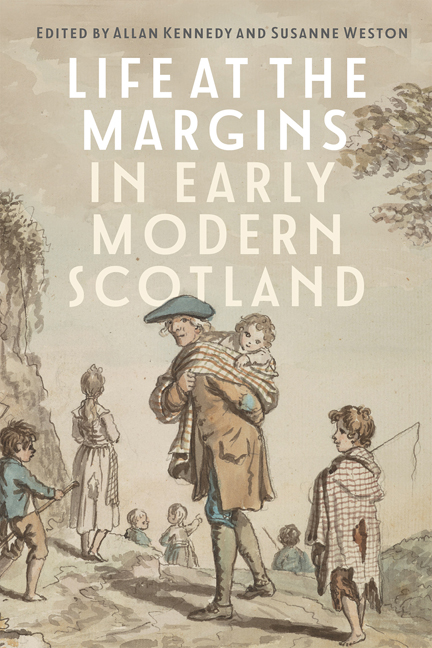2 - Relieving the Poor in Mid-Seventeenth-Century East Fife
Published online by Cambridge University Press: 08 May 2024
Summary
In the First Book of Discipline (1561), Scotland's Protestant reformers committed themselves to caring for the poor. While insisting that the Kirk would not be ‘patronis for stubburne and idill beggaris’, the First Book was clear that offering succour to ‘the wedow and fatherless, the aiged, impotent, or laymed’ was a special commandment of God , and that therefore the new Protestant Church must make it a priority to offer ‘such provisioun’ that ‘of oure aboundance should [the poor’s] indigence be releaved’. Despite such high-flown rhetoric, the conventional historiographical assessment was that the poor relief system Scotland eventually developed, administered wholly by the Kirk and almost completely reliant for its funding on voluntary giving at the church door, was essentially a failure. For T.C. Smout, it was ‘weak and mean’, and indeed ‘the very opposite from what had been intended by the reformers’. Larry Patriquin is still more dismissive, arguing that there was effectively no poor law in early modern Scotland. This he attributes to the country's social, economic, and political under-development, and it meant that no reliable assistance was offered to the poor until the nineteenth century. Much of the most important articulation of these ideas has come, however, from Rosalind Mitchison. For her, the inadequacy of the poor laws meant that Scotland was left with a chaotic, disjointed system, marked by chronic under-funding and inefficiency and consequently unable to offer proper care for the needy. This structure, Mitchison suggests, looks even worse when Scotland is compared to England, which over the same period was developing exactly the kind of statutory, secular poor-relief system to which Scotland unsuccessfully aspired.
These pessimistic conclusions were, however, unduly influenced by the rhetoric of poor-relief legislation. It is certainly the case that Scotland's formal poor laws, especially as embodied in the key 1579 ‘Act for the Punishment of Strong and Idle Beggars’, were notably harsh, focusing largely on the punishment of beggars and making only vague and minimalistic provision for the genuinely needy. It is also undeniable that Scotland, lacking the relative centralisation or bureaucratisation of England, was never able to build a secular or statutory system. Yet more recent scholarship, in focusing on the real-life mechanics of poor relief rather than the theoretical or legislative framework, has presented a less gloomy picture.
- Type
- Chapter
- Information
- Life at the Margins in Early Modern Scotland , pp. 32 - 46Publisher: Boydell & BrewerPrint publication year: 2024

